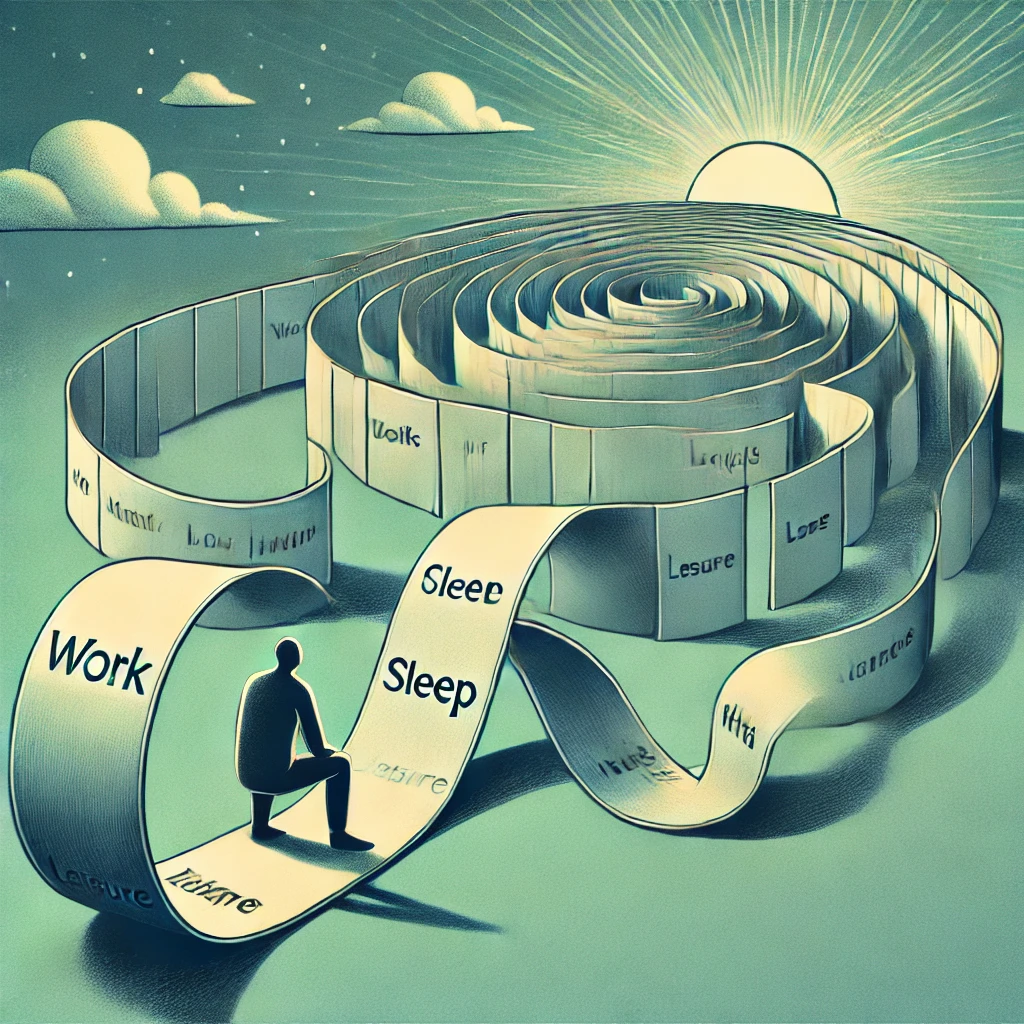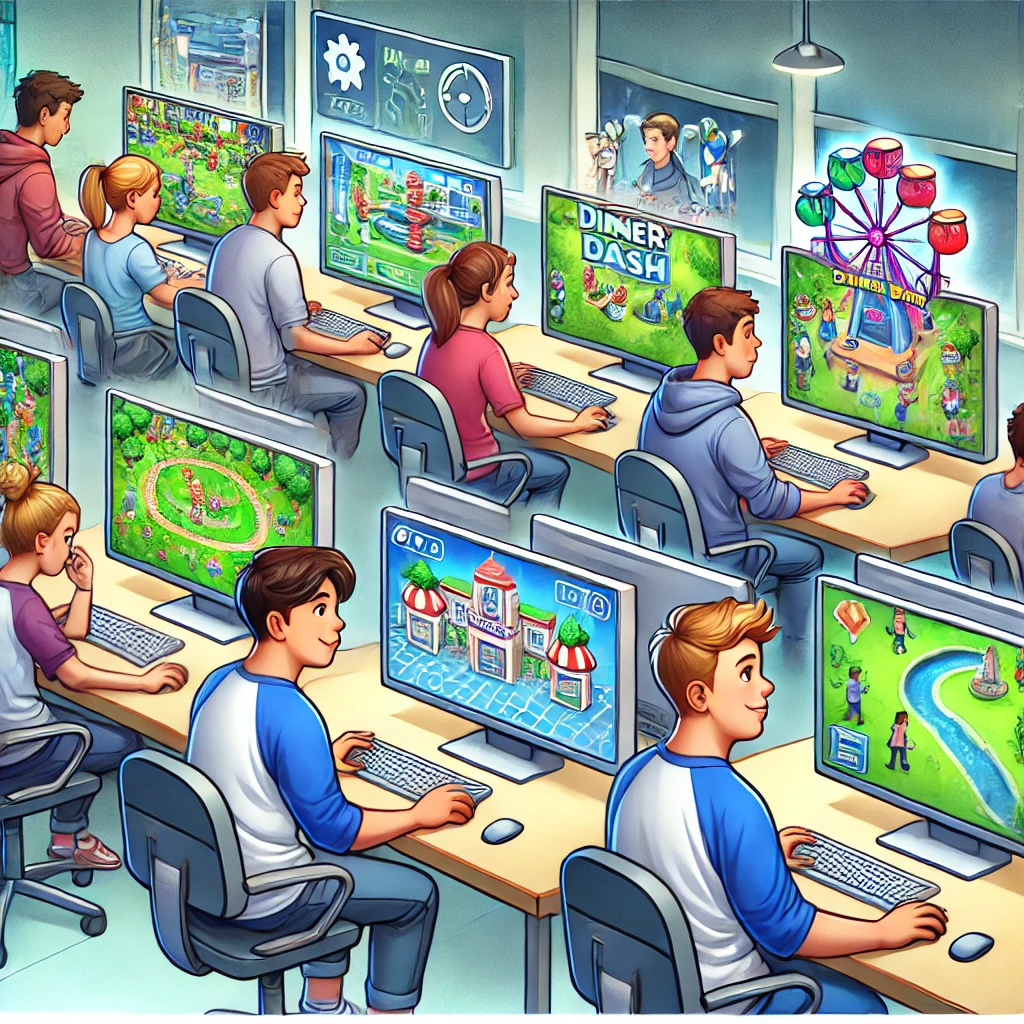Time management is key for college student productivity. More than half of students find it hard to balance school, social life, work, and personal stuff. Learning good time management is very important.
This article shares ten time management tips. These are great for college students. They can make big progress in academic organization and get more done. Research shows that successful students often use time management. It makes them less stressed and they do better in school.
These tips include making lists, figuring out what’s most important to you, and doing activities either alone or in a group. They make you more organized. Websites like HBCU Lifestyle have good advice, too.
Using planners and apps is also smart. Many students say these tools help them a lot. Knowing what’s most urgent and what can wait helps, too. Websites like Trainers Warehouse have tools to try. These tools can help keep students on track.

Learning from pros and using digital tools can really help. About two-thirds of students use special apps and online calendars. They say these tools help them do well in school.
For more tips, see this article. It can teach you to manage your time better in and out of school.
The Importance of Time Management for College Students
Time management is very important for college students. They have a lot to do. There are only 168 hours in a week. Balancing classes, meals, sleep, and friends is key. Knowing how to use time well helps students do great in school.
Improved Academic Performance
Good time management helps students do better in their classes. They should study 36 hours every week for 12 credit hours. This is 3 hours of study for every credit. A well-organized plan helps with exams and finishing work on time. If students use their time well, they are 50% more likely to succeed in school.

Stress Reduction
Managing time well also lowers stress. By setting clear goals and tasks first, students feel less anxious. Having a schedule, reviewing tasks daily, and using planners helps handle school stress. This makes students feel better and healthier.
Balancing Academic and Social Life
Having time for studying and fun is key to enjoying college. Good time management means more free time. This lets students join social activities and clubs without falling behind in school. It’s crucial for growing socially and doing well in college.
In short, time management goes beyond just planning. It helps students succeed in school, enjoy college, and stay healthy. With good time skills, college can lead to great things.
Time Blocking Techniques
Time blocking is a way to organize your day by setting specific times for tasks. This method is especially useful when going from high school to college. In college, you have fewer classes but more to do. Time blocking can keep things in order and boost how much you get done.

Basic Time Blocking
Basic time blocking means you choose certain times, like evenings, just for study. Having fixed times for important activities makes your day more organized. It also cuts down on putting things off.
Task Batching
Task batching is about doing similar things together. For example, you might answer emails and calls in one go. This method is a top way to stay focused and work without breaks in your flow.
Day Theming
Day theming involves assigning a theme to each day. Mondays could be for focusing on your studies, and Tuesdays for group work. It makes you work more efficiently by reducing the number of choices you have to make. This way, you also make sure you spend time on everything you need to do.
Time Boxing
Time boxing sets a time limit for each task. It’s meant to help you focus more and keep activities from dragging on. You might study for 25 minutes and take a 5-minute break. This method, taken from the Pomodoro Technique, helps keep you sharp and productive.
Using the Eisenhower Matrix
The Eisenhower Matrix is a powerful tool for students to manage their time effectively. It helps them decide which tasks to focus on first. By putting tasks into four groups, it simplifies their choices and boosts their work rate.
Urgent vs. Important Tasks
The key of the Eisenhower Matrix is separating urgent from important tasks. Urgent tasks need immediate action and have deadlines or crises (Quadrant I). Important tasks help you reach your big goals but can wait a bit (Quadrant II). This method lets students see what they should do right away and what can wait to do later.
Tasks that eat up time but are not that important go into Quadrant III. These can often be done by others or delayed. Then, there’s Quadrant IV, for tasks that aren’t urgent or important. These should be limited to make the most of your time.
Creating Your Matrix
Students can make their own Eisenhower Matrix easily. They list their tasks and decide which Quadrant they’re in based on need and importance. This helps them focus on what really matters. For example, taking care of yourself goes in Quadrant II, showing its value despite not being urgent.
Keeping the Matrix up to date is key to staying on top of things and keeping stress low. There are helpful apps like Focus Matrix and Priority Matrix to streamline this process. These tools make task management smoother and more effective.
The Mayo Jar Activity
The Mayo Jar is a great way to teach students about time management. It shows how to fill a jar with rocks, pebbles, sand, and water. Each item stands for different tasks.
They start by putting rocks in, showing big tasks come first. This helps them understand how to handle important jobs before others.

This activity helps students think about their time use. The rocks are crucial work that needs immediate attention. Pebbles are the daily jobs that help with these big tasks.
It teaches that small and unforeseen projects come last. They should only be done if there’s time after the vital work is finished.
Studies show people waste about 60 hours a month on unimportant jobs. The Mayo Jar method helps them focus on what’s vital. It helps students see how to use their time better to meet their goals.
The Mayo Jar is good for time workshops or personal planning. It guides students to do the big tasks first. This leads to managing work better and feeling less stressed.
Almost half of all workers are less productive now than before the pandemic. The Mayo Jar’s step-by-step approach to time is now more important than ever.
The Mayo Jar is a great tool for learning about setting priorities and managing time well. It helps students organize their day, reduce interruptions, and reach their goals faster.
$86,400 Time Management Exercise
The $86,400 time management exercise teaches how valuable time is. It compares seconds a day to money. It makes people think about how they use their time. This helps understand the importance of managing time well. Just like money, time not used well is lost forever.
Connecting Time and Value
This task helps students see their days as if they had $86,400 to spend. It shows how our choices make our day valuable. The key is to plan well and do important tasks first. This helps students use their time wisely for what matters most to them.
Daily Application
Using this exercise daily means scheduling tasks carefully. It’s about avoiding things that waste time. And remembering every second can help reach personal and school goals. Students get better at managing time by doing this. They learn to make every day count towards success.
The Ribbon of Life Exercise
The Ribbon of Life exercise lets you see how time is used over a lifetime. It uses a ribbon to show how our days are spent. This makes it clear how much time goes to work, sleep, and fun. By cutting parts of the ribbon, you see what really matters in your life.
Each person has around 70 to 75 years to live. At the start, everyone gets the full ribbon length. Then, they cut out time for sleeping, eating, and going to work. Weekends and holidays also take away from the ribbon. This shows that time for what truly counts is limited.
At the end, you realize there’s not as much time as you thought. This exercise teaches us to make smart choices in how we use our time. It shows that focusing on important goals is key. This lesson affects school, work, and happiness in big ways.

This isn’t just a game; it makes you think about life differently. When you see time like this, you might want to plan your days better. This new understanding can help anyone reach their dreams. It’s a lesson for students and workers on making better choices every day.
Interactive Workshops for Time Management
Interactive workshops for time management are fun and helpful. They let students practice important time skills in a lively setting. This includes learning to plan, prioritize tasks, and review progress.
Working together teaches them new strategies. They also make friends who help keep them on track. For example, a “Where Does the Time Go?” worksheet shows students have about 11.0 hours for study each week. It suggests spending 2 hours outside class for every hour in class.
These workshops are full of activities and last up to 25 minutes each. Special programs, like StudentLingo, offer 50 workshops online. They follow accessibility standards to ensure everyone can participate. A study at the College of Southern Nevada found students using StudentLingo got better grades.
Students learn many useful time management tricks. “101 Time Management & Time Saver Strategies” is just one example. It has 46 tips, like setting goals and breaking tasks into smaller parts. Teaching these skills helps students use time better in their daily life and studies.
Checking how well workshops work is very important. Schools look at tests and reports to see what students like and what helps the most. There are also cost-saving deals for schools that sign up for a few years or get many services together.
Joining a workshop can make juggling school and personal life easier. Making a weekly schedule helps. It should include time for study, fun, and family. This way, students can have a balanced and successful life.
Time management workshops are great for learning together and applying skills. They help students do better in school and grow personally. With a good plan and lessons learned, these workshops are very effective.
Simulation Games to Develop Time Management Skills
Simulation games are a fun way to practice time management skills. In these games, players have to choose what’s important, use resources well, and deal with surprises fast. Games like “Timez Attack” and “Diner Dash” let students see how their choices affect outcomes. This learning is helpful in school and daily life.
Studies from SciTechDaily show that gamers think quicker and make better choices. Games where you manage your time also boost your quick thinking and reflexes. For instance, “Hotel Dash: Suite Success” and “Sally’s Spa” help you learn to plan, solve problems, and make strategies. These are vital skills for students.
Games like “Theme Hotel” and “Elvenar” can help you become better at using time and resources wisely. They make you think ahead and plan carefully. For example, “Planet Coaster” is a game with very high ratings on Steam. It offers hard challenges that need smart planning.
Playing these games helps students prepare for school and daily life tasks. They learn important time and strategy skills in a fun way. Also, these games are great for team building. They make learning to manage time a fun and interesting experience for everyone.

From simple online games to more involved ones, simulations can help a lot. They are a great way to get better at managing time. And there are games for all tastes and skill levels. So, everyone can find a game that helps them learn and have fun.
Time Management Icebreaker: Lists & Priorities
Starting with an icebreaker on time management is great for students. It gets them talking about how they handle tasks. The Time Prioritization Game is a fun and interactive way to do this. It lasts 25 minutes, split into a 10-minute game and 15 minutes for discussing points.
In the game, teams of 5 to 8 people get a list of tasks. Each task has its point values. A task like ‘Create something for the instructor to wear’ might get 10 points. If the instructor wears it, the team gets an extra 5 points. Teams have to figure out which tasks to do first to score the most.
This game can easily work online too. It’s all about team strategy. Teams that know each other well might try harder tasks. New teams could stick to simple tasks. After the game, points are tallied, and the winning team is announced. It’s all in good fun and builds teamwork.
This game isn’t just about breaking the ice. It also helps with team-building and teaches time management. It uses popular methods like the Eisenhower Matrix and the Pomodoro Technique. By playing, participants learn all about setting priorities and the power of working together.
Time Management Activities for College Students
Good time management is key for busy college students. Tools like the Eisenhower Matrix and time blocking help a lot. They let you figure out what needs to be done now and what can wait, making each day easier.
Applying to Daily Routine
Using time well makes students more productive. Studying for 50 minutes then taking a 5-minute break is a smart move. Think about when you learn best, and focus on those times. Don’t forget to reward yourself after finishing tasks; it keeps you going.
Importance of Consistency
Being consistent is golden for managing time right. Using tools like a planner or a digital calendar helps many students stay organized. It makes saying “NO” to extra stuff simpler, giving more time for what matters. Being consistent means doing well in school and still enjoying college life.
Conclusion
Time management is really important for college students. It helps them handle lots of work with less stress. By using the tips in this article, they can be more productive and live a balanced life. Allocating more time for tasks counters the Planning Fallacy. Also, taking a break every 90 minutes, like Nathaniel Kleitman suggests, keeps productivity high.
It’s better to focus on one task at a time. This makes students do more and better work. Creating daily routines and habits leads to better grades and feeling good. Doing the big tasks first makes the day feel successful from the start. Time management is not just about finishing tasks. It’s about working in a clever way to be less stressed.
Good time management means more free time for fun things. College work is harder than high school, with more complex tasks. Learning good time skills now sets students up for future job success. It opens doors to more opportunities and helps in being productive in the long run.
FAQ
Why is time management crucial for college students?
Time management helps college students in many ways. It boosts grades, lowers stress, and helps balance school and fun. Good time skills mean better study, less wasted time, and more fun without worry.
How can time blocking improve student productivity?
Time blocking means setting times for different tasks. This makes students concentrate better and avoid getting sidetracked. Using methods like grouping tasks and setting days for specific activities makes work easier and faster.
What is the Eisenhower Matrix and how does it help in prioritizing tasks?
The Eisenhower Matrix sorts tasks by how urgent and important they are. It helps students see what must be done right away and what can wait. This method makes choosing what to do first easy and smart.
How does the Mayo Jar activity illustrate effective time management?
The Mayo Jar lesson uses rocks, pebbles, sand, and water to show task sizes. By putting big tasks in first, it shows how to focus on what matters most. This teaches students to always start with what’s most important.
What is the $86,400 time management exercise?
The $86,400 activity compares seconds in a day to dollars to show time’s value. It pushes students to think about how they spend their time. This promotes planning their day with care and cutting out time-wasting.
How does the Ribbon of Life exercise help in understanding time allocation?
The Ribbon of Life uses a ribbon to represent life’s time and activities. It shows how we use our time. This makes students think about choosing their activities wisely to reach big goals.
What benefits do interactive workshops offer for time management?
Workshops let students learn time skills by doing fun activities and real-life tasks. They share tips and tricks, helping each other stay on track and get better at managing time.
How can simulation games aid in developing time management skills?
Simulation games are like real-life in needing to choose tasks and manage time wisely. They boost thinking skills. Games such as “Timez Attack” and “Diner Dash” make learning fun and not stressful.
What is the purpose of a time management icebreaker activity?
Time icebreakers get students talking about how they handle tasks. They role-play making quick decisions, building teamwork and clear communication. This shows the importance of sorting tasks by their needs.
How can students integrate time management activities into their daily routines?
To make time skills stick, students can use sorting techniques and set a schedule. Doing this daily makes time management part of their lifestyle. It makes them better at school work and stress-free.

More Posts
Hectic Work Schedule And Mental Stress
11 Top Reasons To Plan Digitally
Why Use A Digital Planner? 11 Reasons To Plan Digitally If you have ever used daily diaries to make plans for the coming time. In that case, you can be familiar with digital...
9 SMART Time Management Goals You Should Consider
Time management tricks make it easier to get more done today. SMART goals—Specific, Measurable, Attainable, Relevant, Time-bound—turn wishes into real plans. They give you clear steps and can make daily tasks and work...
5 Best Daily Planners with Goals (Free & Paid)
5 Best Daily Planners with Goals ( Free & Paid)